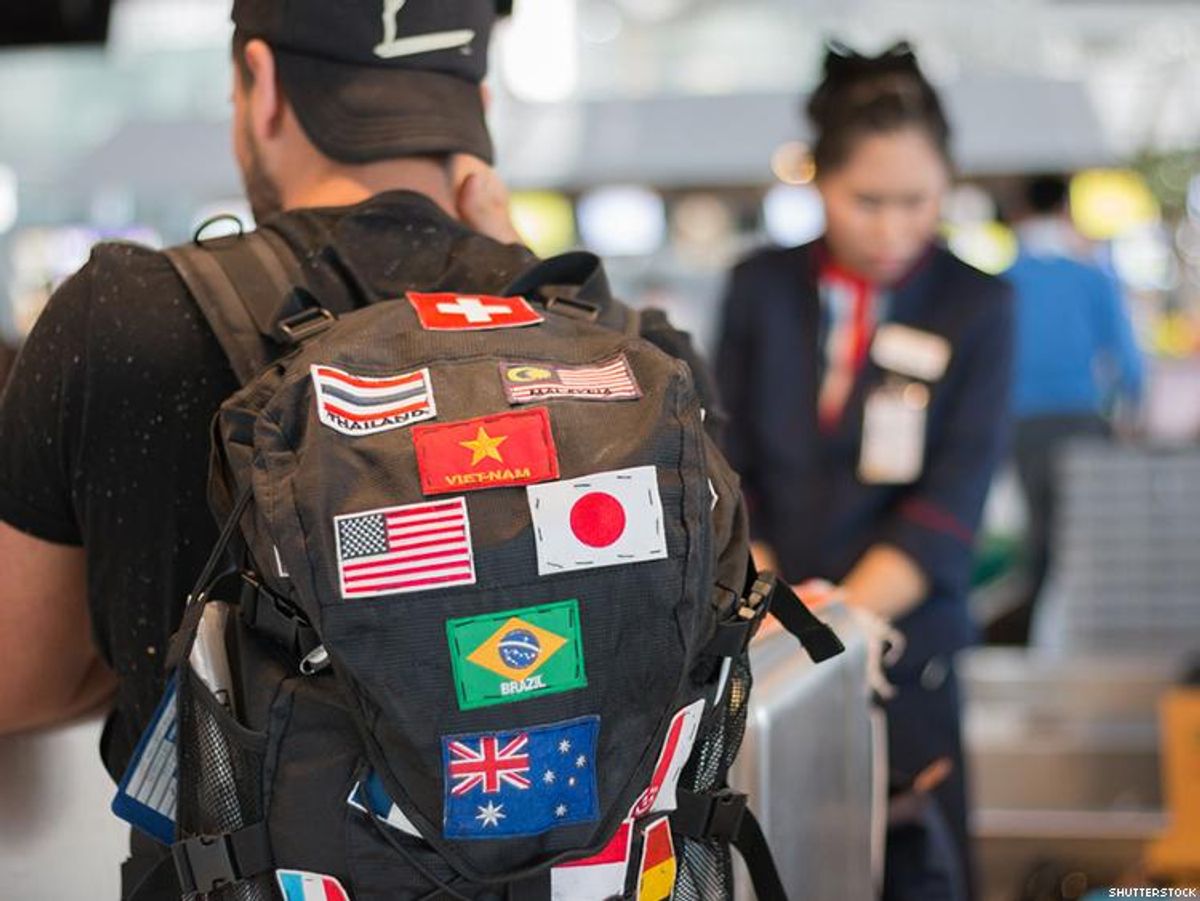News last year that Signapore removed it's barrier on HIV-positive travelers reminded us that if you’re HIV-positive and looking to visit or work in another country anytime soon, you had better know whether your status will be a source of trouble. In some places, stories of travelers who ended up at the emergency room after an unexpected accident and then found themselves immediately deported for being HIV-positive aren’t uncommon. Forty-five countries, territories, and regions have some legal restrictions on foreigners known to have HIV, according to a 2012 study compiled by UNAIDS.

Caribbean Paradises
Turks and Caicos (above) in the Caribbean are a sightseer’s paradise, but the islands bar HIV-positive people from working or residing there for even a short period. But if your hopes are set on escaping to the Caribbean, there are no laws on the books barring HIV-positive tourists from St. Lucia or Trinidad and Tobago, and, let’s face it, they probably have better beaches.
Headed to Zion
Surprisingly, some of the places that have restrictions on HIV-positive travelers are known for social and political acceptance of LGBT people. For example, LGBT-friendly countries including Israel, Australia, and New Zealand have laws requiring HIV testing for foreign workers, and the United States barred HIV-positive visitors until fairly recently.
Israel requires HIV testing for certain foreign workers, and the Ministry of Interior reserves the right to deny work permits to those who are HIV-positive. The law appears designed to largely to prevent people from countries with particularly high HIV rates, such as those in sub-Saharan Africa from entering the country, but it can affect anyone with HIV, including Americans.

The Bustle of Asia
A record 6 million travelers visited Taiwan (above) in 2011, yet the country is anything but friendly to those with HIV. Foreigners planning on staying in the country longer than three months can be forced to take HIV tests or other medical examinations, according to the Tainan City Health Bureau, and are not allowed to stay in the country if they test positive.
Pyramid Hunting
If you’re looking to visit pyramids, you might want to plan your vacation for Mexico or Peru, since Egypt is strict about deporting HIV-positive foreigners.

Going Down Under
In Australia restrictions come into play primarily when HIV-positive people wish to stay in the country for longer than 90 days. HIV testing is required for anyone older than 15 applying for a permanent visa. Being HIV-positive does not usually disqualify an applicant, but government officials may take the cost of the applicant’s care or public health risks into consideration.
New Zealand’s law is similar to Australia regarding the treatment of HIV-positive people: Tourists who are staying in the country less than 90 days do not have to declare their status upon arrival. However, people applying for work permits or residency must be tested for HIV and can be turned away if they are positive. Also, a New Zealand policy on accepting refugees from political persecution reserves 20 places for people with HIV.
The Rest of the Best
Most countries, territories, and regions have no HIV-specific restrictions on entry, stay, and residence these days. The United States is now included in that list (after lifting its ban on HIV-positive foreign visitors in 2012), along with such major nations as the United Kingdom, Brazil, and Japan.
For more on places where it’s OK to travel (or not) visit UNAIDS.org.














































































